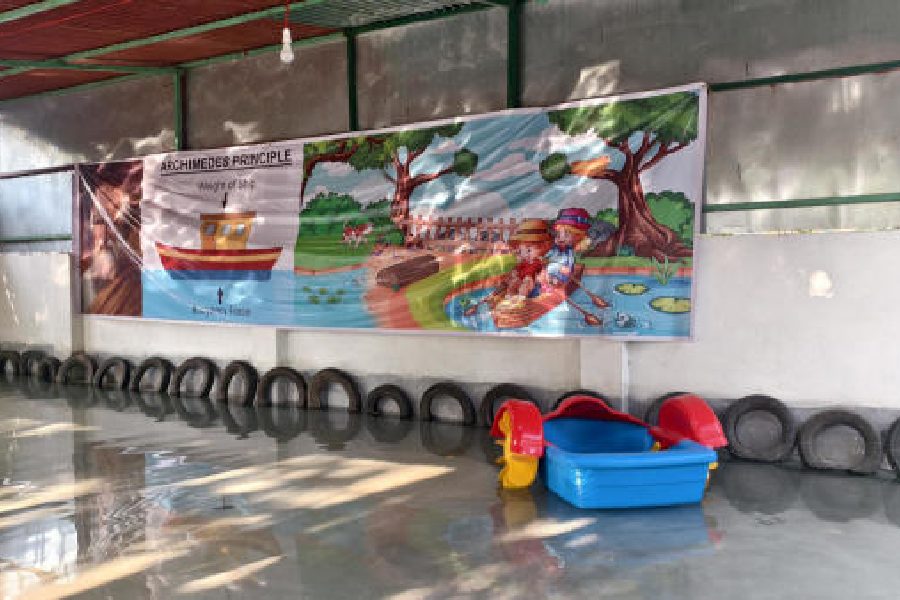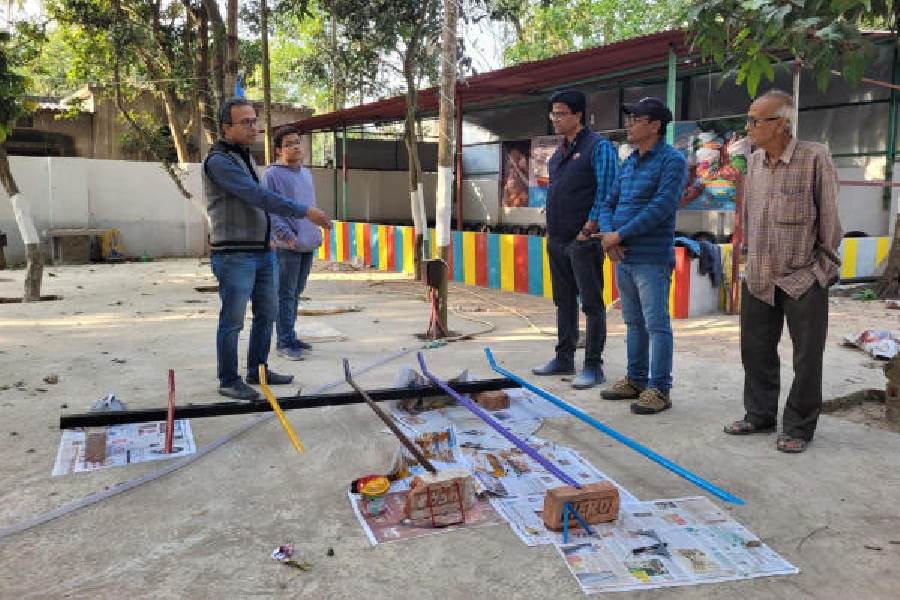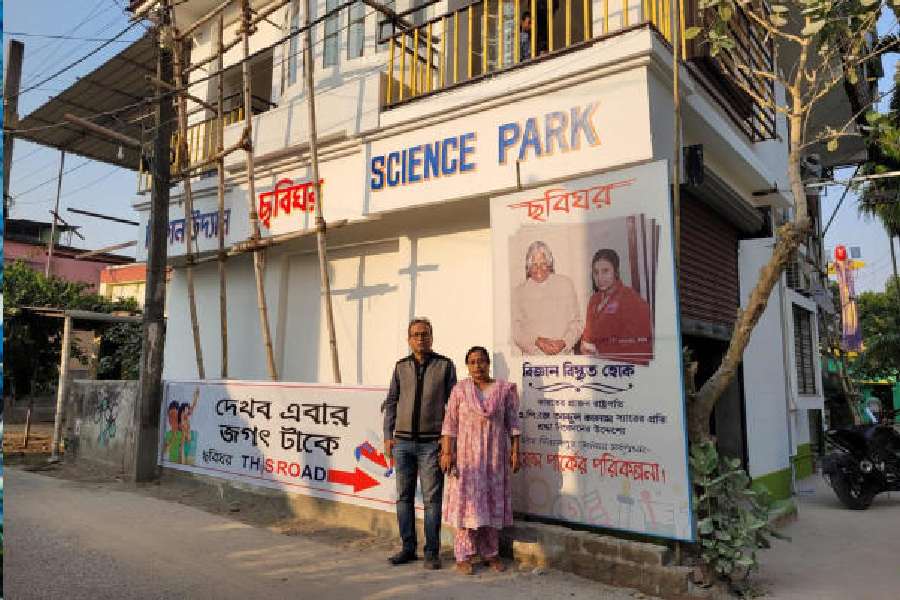A couple in Raiganj have set up a science park to inspire students to explore the wonders of science interactively and playfully.
Ophthalmologist Ashok Dutta and his wife Sanhita, a primary schoolteacher, transformed their ancestral property into a site for learning and exploration.
When Sanhita emerged as a top graduate in zoology from Netaji Subhas Open University 18 years ago, then President and chancellor A.P.J. Abdul Kalam presented her with a gold medal.
“At that time, he had told me to do something to increase students’ interest in science. His words had encouraged me for years and finally, my husband and I could establish a
science park,” said Sanhita, who lives in Udaypur, Raiganj.
Over the years, the couple saved a portion of their earnings. During the Covid-19 pandemic, Ashok’s father allowed them to use approximately a two-and-a-half bigha plot adjacent to their ancestral house for a cause.
“His condition was that we could not sell the land and cut down any tree and it should be used for the benefit of others,” said Ashok.
Ashok and Sanhita continued to work on their dream project and used their savings to restore the ancestral house and build a new three-storied structure.
Using discarded and unused materials, they crafted models that demonstrated different scientific principles.
After nearly three years of hard work, Sanhita and Ashok established Raiganj’s — and north Bengal’s — first private science park, where students can explore and learn science concepts hands-on for free.
The park was inaugurated recently and since then, it has been drawing hundreds of students and others.
Ashok said inside the park, the interactive exhibits start with a periscope fixed to a wall, enabling viewers to see beyond obstacles.
“A small artificial reservoir with a paddle boat teaches Archimedes’ principle of buoyancy. Nearby, a rope-and-brick setup explains the concept of levers, while a fixed bicycle wheel stand allows students to understand torque forces. Two pendulums swinging in sync demonstrate primary colour mixing and harmonic motion, and swinging frames between trees illustrate Newton’s third law of motion,” he said.

The artificial reservoir with a paddle boat at the park to teach Archimedes’ principle of buoyancy
The one-story ancestral house on the premises features more models, including iron pipes producing varied sound intensities based on their lengths, three-dimensional models of the eye and brain and skeletons. Six clocks in another room explain the time differences between countries based on longitude.

Iron pipes which produce varied sound intensities based on their lengths
The doctor said the surrounding garden showcases various plants, including a touch-sensitive cat’s claw — a vine —, allowing students to observe that plants are also living beings.
The adjacent three-storied building is dedicated to theories of light, with exhibits on reflection, refraction and optical illusions. The rooftop houses a telescope for stargazing and a musical ramp plays seven notes when walked upon.
Ashok said the models and setups allow hands-on learning experiences, bringing theoretical concepts to life.
“To ensure students get the most out of their visit, the park employs three trained guides who assist and educate visitors,” he said.
The couple also made provisions for schools to bring students in groups, offering a kitchen and dining area within the park for the visitors’ convenience. “This project is our tribute to the vision and values of my father-in-law and A.P.J. Abdul Kalam,” said Sanhita.
Gautam Sinha, the North Dinajpur district executive president of Paschimbanga Vigyan Mancha, appreciated the couple’s initiative.
“They have used their ancestral land and savings to create a resource to inspire students to love science. This is commendable. We have already urged schools to organise visits to the science park,” he said.











